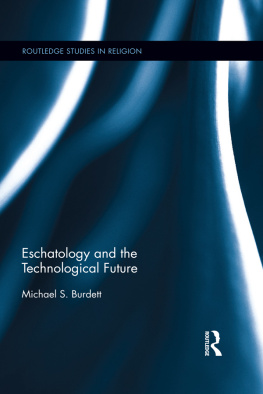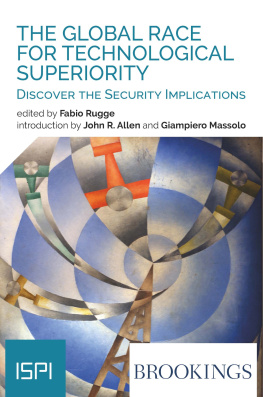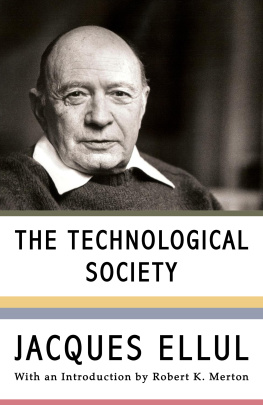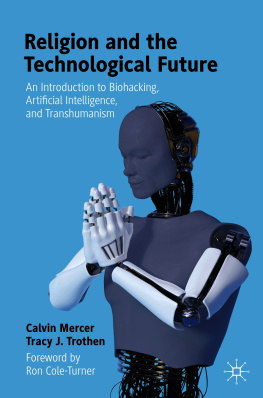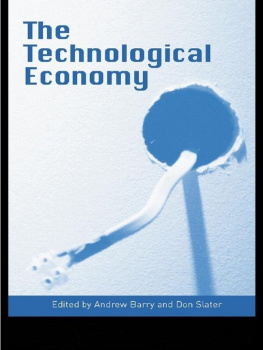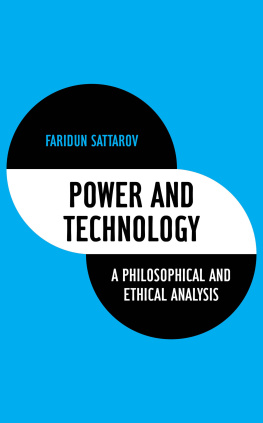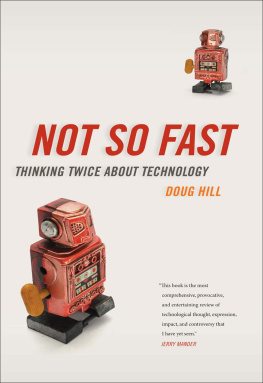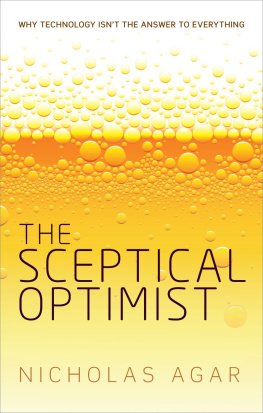1
Introduction
This is a book about the technological future. It is about how technology in the last two centuries has stimulated our speculations, imaginations and hopes for the future. Of course, it might be added that this preoccupation with the future is not unique to the technological future. Concerns about economic stability and the erosion of confidence in our models of economic growth have equally contributed to increased speculation about the future as have the present ecological and energy crises. Alvin Toffler coined the term future shock And the general consensus is that the ecological and energy crises can be aided with increasing green technologies. Where other forces may compel us to obsess about the future, technology is very much a key component to all imagining of that future today.
Of course, more will be said about our public fixation with the technological future, particularly in the next two chapters. This book, however, is also about how the future gets constructed. What exactly is the future from a more philosophical point of view? How does the future relate to the present and to the past? Does appealing to ontology help? Is the future just a product of the past and present? Is it driven from behind, or is it something which beckons from ahead? These issues are the topic of the final three chapters.
This text also addresses these questions from the Christian tradition. The latter half asks how Christians, in particular, have thought about the technological future and how they construct the future. Christian scholars have, in the past century, increasingly reflected upon the force of technology on individual lives, the church, and history and the future more generally. While I would suggest that not enough attention has been devoted to
Whereas these are the general themes of the present work, I also offer a constructive argument. In the first instance, I aim to assess how and to what extent technological futurism, and in particular transhumanism as an extreme version of technological futurism, can be incorporated into the Christian tradition. In so doing, I aim to highlight the relative deficiencies and harmony transhumanism has with the Christian understanding of the future. In the second instance, I argue that Christian eschatology can provide a more robust account of the future than that offered by technological futurism. I argue that Christian eschatology, when it emphasises the themes of possibility and promise, canat the leastprovide a needed corrective to technological futurisms and specifically transhumanist understandings of the future, orat mostprovide a counterreligious narrative which allows for radical hope in the way technological futurisms alone cannot. Christian eschatology does not restrict itself to what is only actual to create its future. Rather, it is open to a God of possibility and promise who is not limited to interpolation and history, but can bring the radically new in the Kingdom of God. The Christian response to technological futurism is that the future is Gods future and must be set within the interpersonal nature of a promissory triune God who brings new possibilities to the world.
But why is this book needed specifically? First, as intimated above, society today is concerned about the future and, in particular, there is concern about how technology is ramping up the stakes of our continued existence. As we will come to see in the next few chapters, technology has been the locus of salvation for many when reflecting on the future whilst, for others, it has been the gravest enemy. Generally speaking, this book is required because technologically driven ideologies verging on the religious are becoming ubiquitous today.
1.1 Definition of Terms
How is technology treated here? In some ways, this will become clearer throughout the text. But, suffice it to say here that the technological future to which I refer is not exhausted by, say, the future of the computer, the car or the linear accelerator. I do not mean the future of a particular technology, although this is included. I am interested in how technology as a universalising and totalising force on society and humanity is taken up in imagining the future. This book is not overtly concerned with the ethical mandates of growing technologies, but is interested in how humanity perceives that technology often in religious terms. Through study of speculation about the future, tacit convictions and ultimate concerns become much clearer. All of which implies that study of the technological future can be relevant today because it can help illuminate how we think and feel about ourselves and our environment in relation to that technology.
I suggest in this book that there are two possible approaches to the future. These two approaches provide a helpful heuristic in guiding our reflections on the technological future. Following Jrgen Moltmann and Ted Peters, the future can be interpreted as either futurum or adventus .
I have been using the term technological futurism. A technological futurism is a future in which technology figures prominently. I use it to describe notably secular notions of the future that give a certain priority to the future as a product of forces inherent in the present: futurum . It is often related to our human future in the form of utopia or dystopia but is inclusive of any reflection on the future. The technological qualifier signifies that the content of this future and the catalyst is technology. Not all technological futurisms are equal. I do not intend to imply by this term that the technological future posed by Edward Bellamy is the same as that posed by R. Buckminster Fuller; still less that transhumanism conveys a future that is identical with that of the technocrats. I see technological futurism on a gradient where religious accounts of the future make up the other end of the scale. Some accounts of the technological future are more secular and depend upon futurum , making them favour a technological futurist approach, whereas others might appeal to Gods action in the world and adhere to the future as adventus .
From the fourth chapter, my main focus is on a unique strand of technological futurism: transhumanism. I prefer to use the term transhumanism instead of posthumanism, another term sometimes used, because, first, it is Despite focusing my comments to a specific technological futurism, transhumanism, by the end of this book many of the reflections and criticisms levelled at transhumanism may be extended to technological futurism more broadly.
1.2 Methodology and Overview
The methodology of this text, or how I go about addressing the technological future, is visible from its overall structure., then considers how notable Christian figures in the 20th century have provided a theological response to these ideas of technology and the future. These Christian responses will then contextualise and orient the final chapters which give a constructive appeal. This final section then considers the philosophical and theological issues at play in constructing the future. Issues such as the futures relation to ontology and, from a Christian perspective, how promise and possibility are central to understanding the future as Christians.
The next chapter looks at the history of our contemporary technological imagination in technological utopias. It begins with works by Francis Bacon and N. F. Fedorov and moves into the 19th and 20th century considering several American technological utopias. The third chapter turns toward works of science fiction and assesses three ways technology has been depicted in the future in science fiction: (1) adventurous and transcendent; (2) dystopian and oppressive; and (3) questioning the demarcation between , concludes by offering three areas of discrepancy between Christianity and transhumanism. First, the Christian future is entirely built upon the mechanics of the interpersonal grounded in the triune life of God that is life affirming and safeguards human virtues whereas, despite their efforts, transhumanism is not. Second, Christians uphold the value of limit and creatureliness whereas transhumanists deny any such limitations and instead espouse a dangerous self-transcendence. And, finally, Christianity upholds the value of radical hope in a future that is beyond calculation and possibilities derived from the outworking of the world. The transhumanist future is interpolated from the past and present, which makes the possibility of such radical hope impossible.

